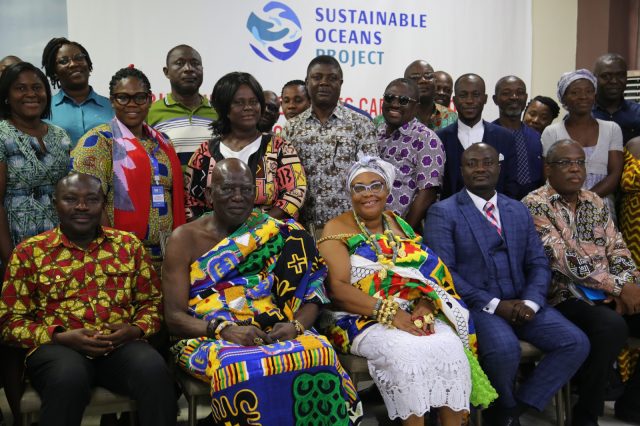Fishermen in Ghana’s coastal regions are expected to benefit from a three-year project launched by four fisheries-focused non-governmental organisations.
The project is to help reduce declines in fish stocks, improve the incomes of fishing communities, and address the effects of climate change on fisheries in Ghana.
Speaking at the launch of the project, the deputy minister for Fisheries and Aquaculture Development, Moses Anim, assured that the ministry will ensure that fishers conform to the right methods of fishing and also use the right fishing gear.
He said the ministry was working closely with all relevant stakeholders to ensure the growth of the country’s fisheries sector.
Mr Anim further stated that the gains made in the sector by his administration must be sustained in order for the European Union, which has given Ghana a yellow card, to lift the card.
He said that the country was extremely challenged contending that apart from climate change and any other force majeure that comes the way of the country, all the other factors have a human element.
“Even with climate change, human activities are inherent and contribute significantly to its occurrence,” he argued.
The Deputy Minister stressed that the ministry will stop at nothing to ensure that fishers stick to the right fishing methods and use the approved fishing gear.
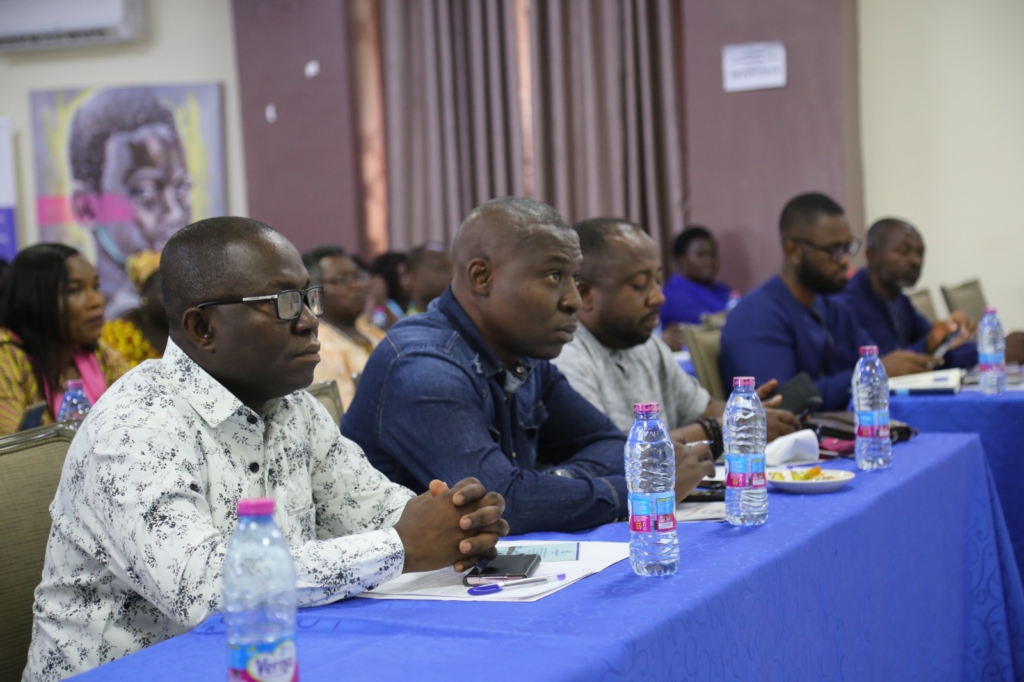
Moses Anim further stated that ending illegal, unregulated, and unreported (IUU) fishing practices would require the support of all stakeholders in the fisheries sector, hence calling on all stakeholders to support the ministry to weed out all IUU fishing practices in the country.
He indicated that the fisheries sector plays a vital role in Ghana’s national development in the areas of job and wealth creation, food and nutrition security, foreign exchange earnings, and GDP contribution.
“The sector serves as the source of livelihood for an estimated 3 million people and accounted for 1.04% of GDP in 2021. Preliminary results from the 2022 Canoe Frame Survey conducted by the Fisheries Commission indicate that 187 fishing communities across the four coastal regions rely heavily on fishing and related activities as their primary source of income and livelihood.
“The small-scale fisheries alone employ around 110,252 fishermen in Ghana, with an additional 500,000 individuals engaged in the processing, distribution, and marketing of fish throughout the country, of which many are women,” he added.
Traditionally, fishing has been an integral part of the social fabric and a way of life for artisanal fishers and coastal communities in Ghana.
However, marine fisheries resources have been depleted in the last decade by illegal, unreported, and unregulated fishing practices.
The collapse of Ghana’s fisheries, especially the small pelagic, will have unimaginable implications for fishing communities, with the potential for widespread poverty and threats to national food and nutritional security.
Mr Anim added that in order to reverse this trend and ensure a sustainable fishery in Ghana, the Ministry of Fisheries and Aquaculture Development and the Fisheries Commission have been working assiduously to clamp down on illegalities in the sector.
“We are working together with all relevant stakeholders to ensure collaborative management of fisheries. Therefore, this three-year project to build grassroots capacity for a sustainable ocean economy in Ghana is timely, especially, when we are implementing a number of measures to end illegal fishing activities in the sector,” he said.
The Deputy Norwegian Ambassador to Ghana, Kyrre Holm, intimated that the launch of the project would provide valuable complementary activities to the already existing cooperation between Ghana and Norway and could advance efforts in improving participation as far as Ghana’s management of marine resources is concerned.
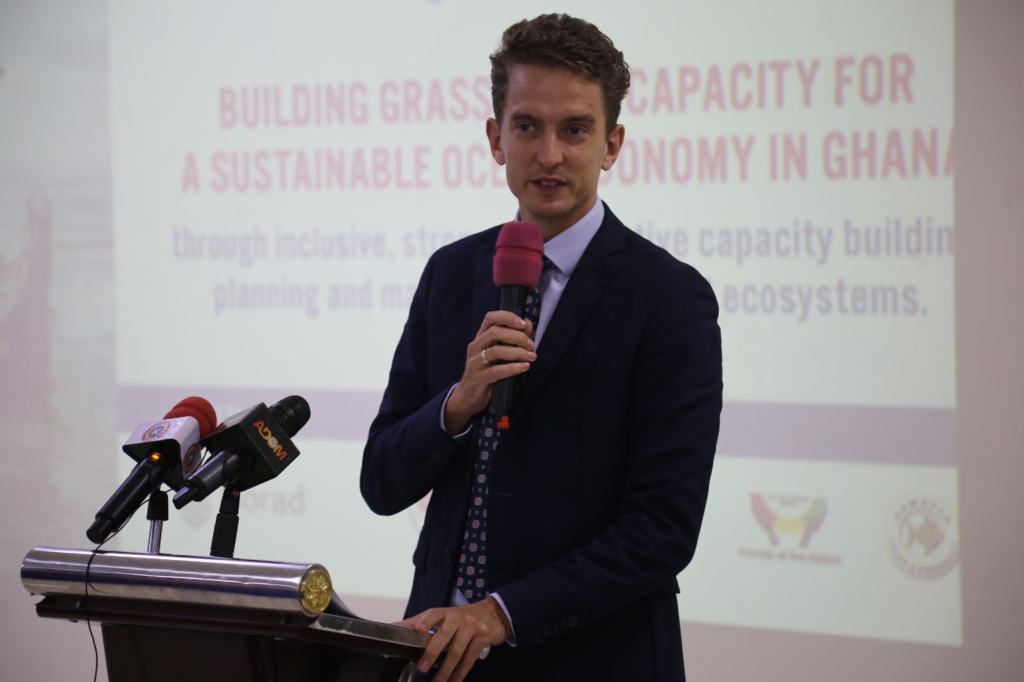
Kyrre Holm
Mr Holm stated that the goal of having a resilient and sustainable ocean economy in Ghana through inclusive, strong, and effective capacity, planning, and management of coastal ecosystems is one that the government of Norway fully supports.
He explained that the Norwegian funding through NORAD is geared towards addressing these challenges, and it has become one of the priority areas of our development cooperation.
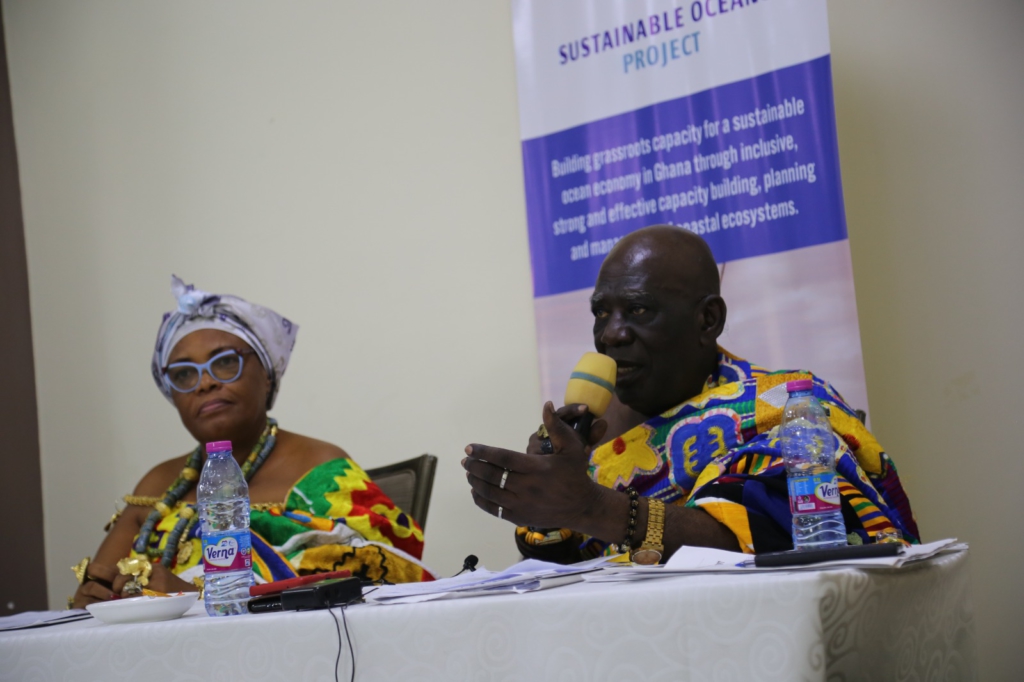
“Building grassroots capacity for sustainable ocean economy in Ghana is a crucial step towards ensuring that the benefits of the ocean economy are shared by all and that sustainable ocean practices are promoted,” he opined.
The Paramount Chief of the Oguaa Traditional Area, Osabarimba Kwesi Atta II, urged all stakeholders in the fisheries sector to contribute their quota towards protecting the country’s fisheries economy.
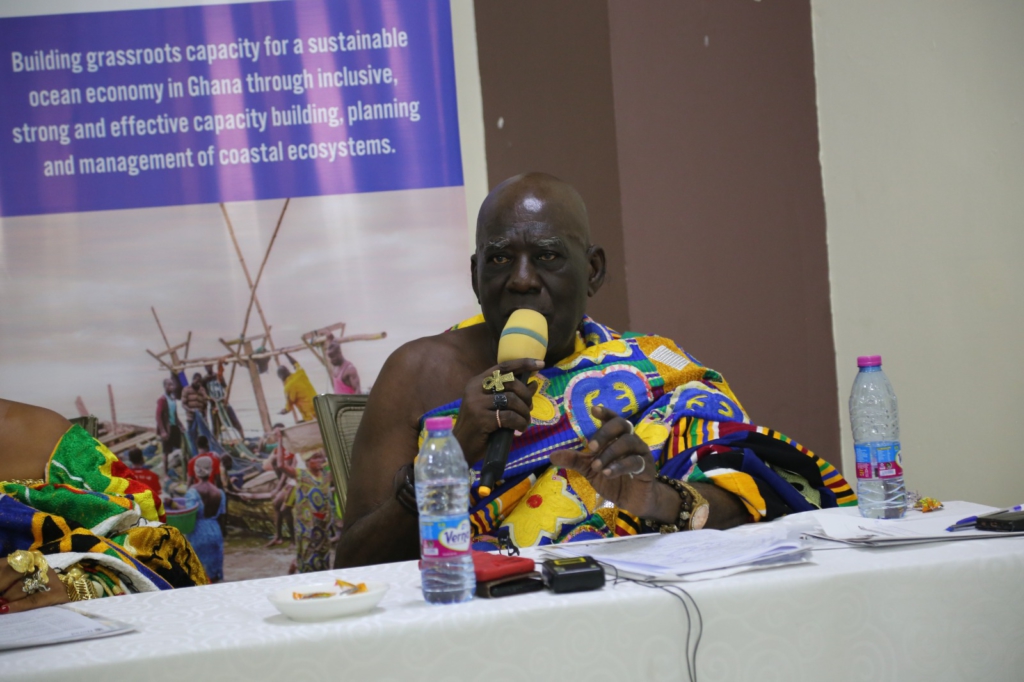
Omanhen of Oguaa Traditional Area and President, Oguaa Traditional Council.
“We are not taking proper care of the sea, and this is due to the apathy in the management efforts of the marines and coastal resources in the country.”
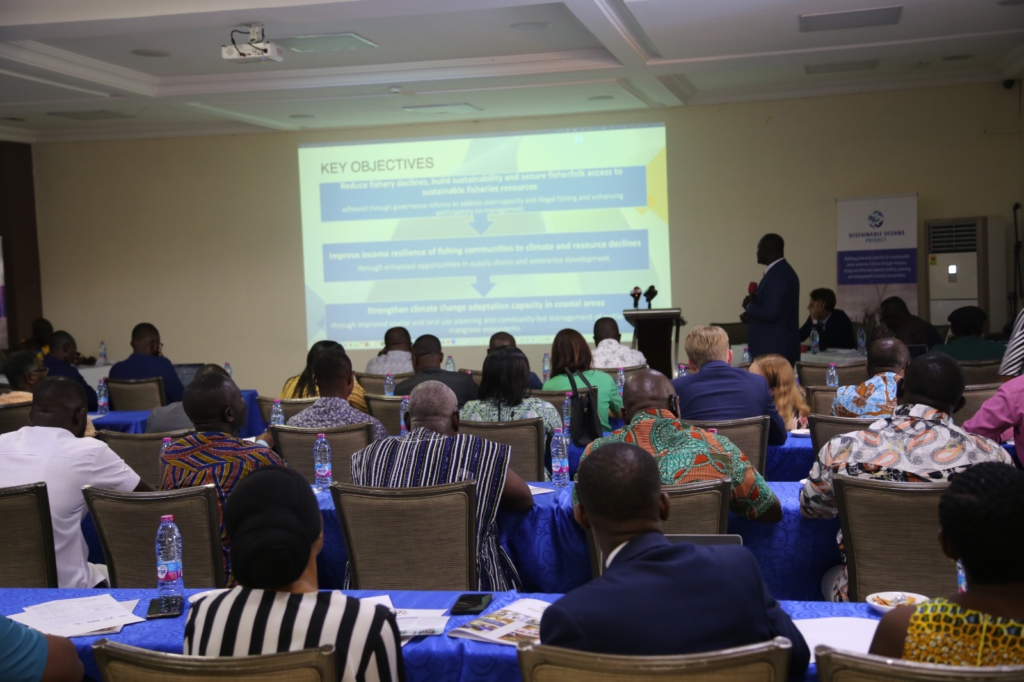
He expressed the hope that the Sustainable Oceans Project will help address some of the burdensome issues in the fisheries sector in the country, pledging his support for the project.
The Project Coordinator of the Environmental Justice Foundation, Theophilus Boachie-Yiadom, outlined one of the key objectives of the project: to reduce fishery declines, build sustainability, and secure fishers’ access to sustainable fisheries resources through governance reforms to help address overcapacity (more fishing fleets than expected) and illegal fishing, and enhance participatory co-management.
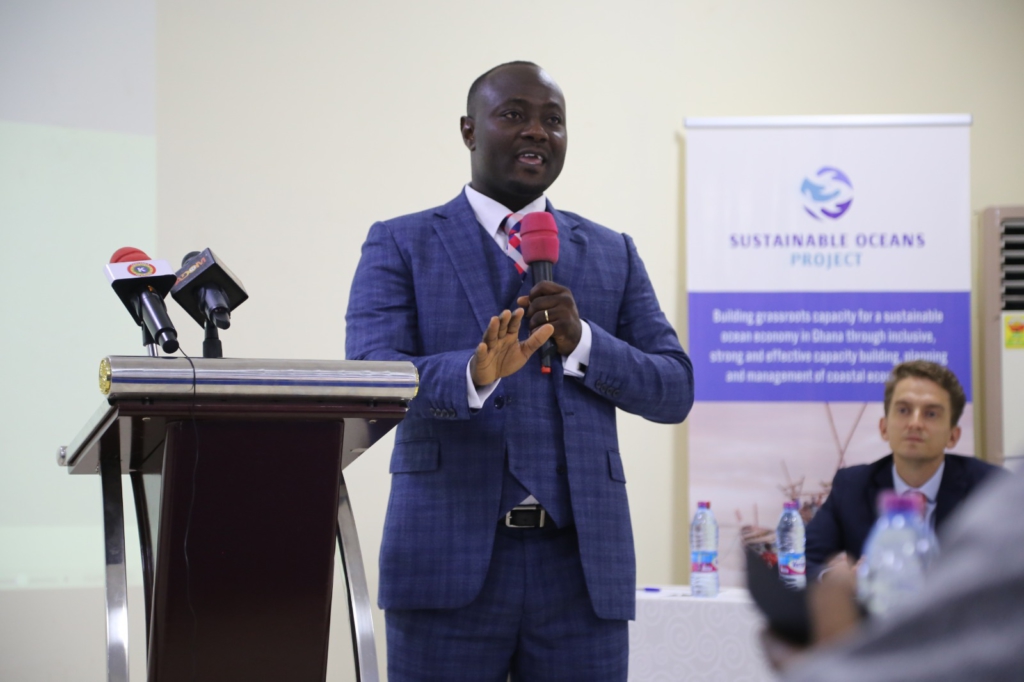
Mr Boachie-Yiadom further noted that the project was intended to improve the income resilience of fishing communities to climate and human-induced threats through enhanced opportunities for value addition along fisheries supply chains and enterprise development.
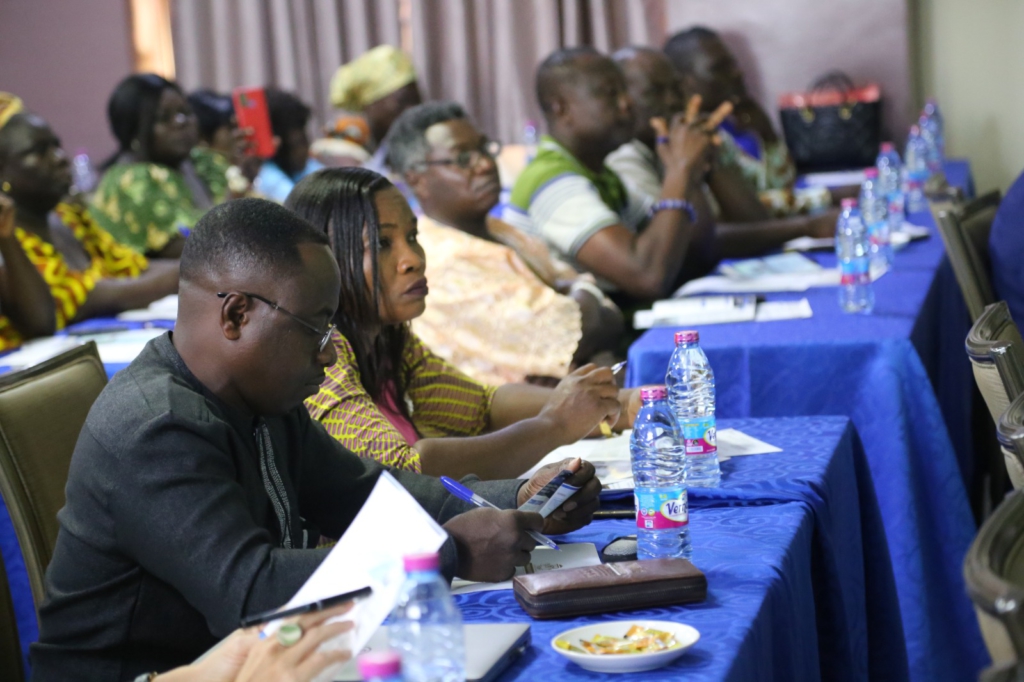
For him, the Sustainable Oceans Project would further help to strengthen climate change adaptation and mitigation capacities in coastal areas through improved spatial and land-use planning and community-led management of wetlands and mangrove ecosystems.
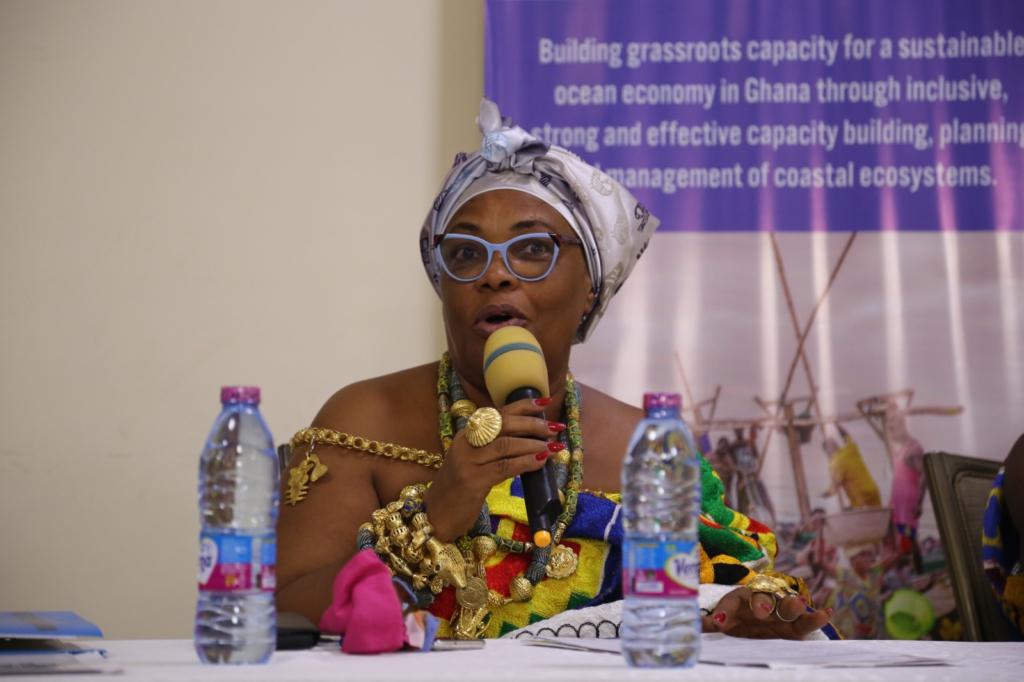
Queen Mother of Nyankrom and acting Paramount Queen of Shama Traditional Area
He explained that in the next three years of the project’s life cycle, the Sustainable Oceans Project would engage small-scale fishers, clam collectors, processors, and traders in the value chain in the Central, Greater Accra, Western, and Volta Regions.
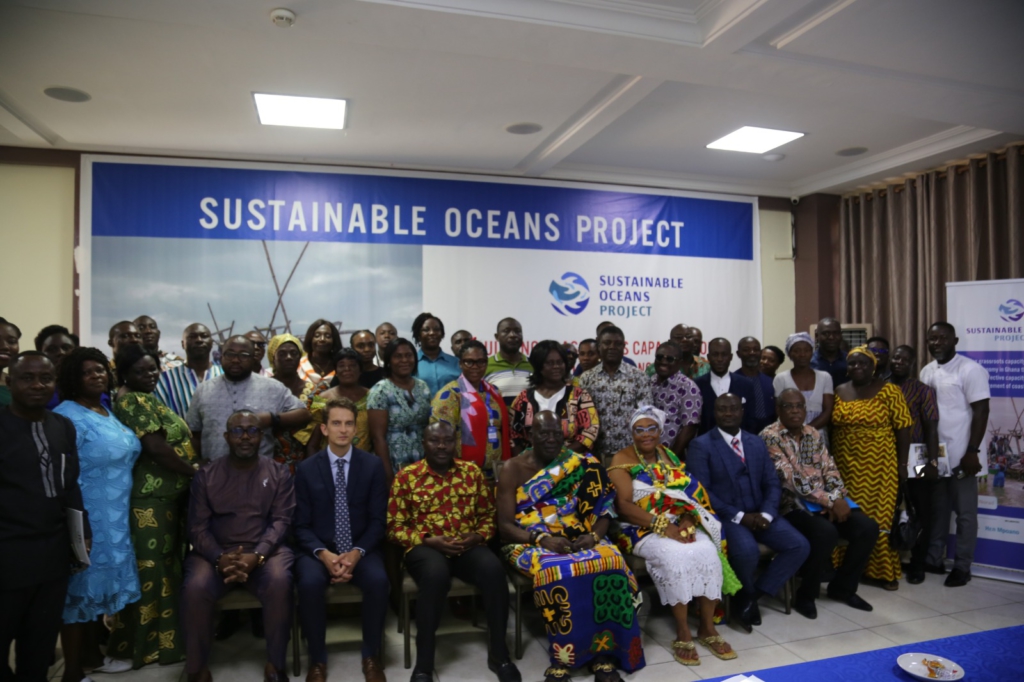
Under the project, over 5,000 artisanal fishers are expected to be trained in fisheries management issues, while over 600 processors would be engaged in value addition, hygienic handling of fish products, and access to credit.
In addition, Mr Boachie-Yiadom said, the project would help build the capacity of over 50 officials from the Navy, Marine Police, prosecutors, and judges, with technical input from national legal experts, to support the effective enforcement of fisheries laws and good governance.
He also noted that the project would build local and national constituencies to protect and rehabilitate mangroves and build resilience against climate change impacts.
“The project will target land use planners at the Metropolitan, Municipal, and District Assemblies (MMDAs) to incorporate mangrove protection into land-use plans; to build mangrove conservation into action plans, including building the capacities of 160 traditional authorities and landowners,” he noted.
For him, it was within the goals of the project to influence national policy implementation and enforcement of fisheries laws and regulations, noting that the project will help to raise awareness on sustainable fisheries issues.
DISCLAIMER: The Views, Comments, Opinions, Contributions and Statements made by Readers and Contributors on this platform do not necessarily represent the views or policy of Multimedia Group Limited.

